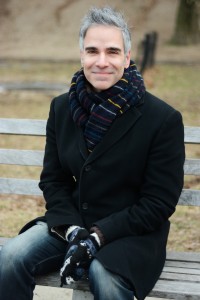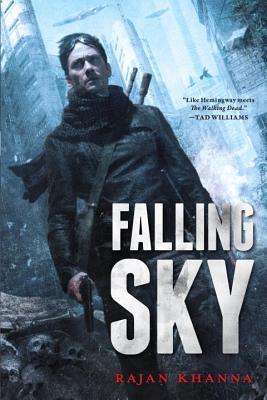Author bio:
Hi Rajan, welcome
over to The Book Plank and for taking your time to answer these few questions.
BP:
First off, could you give us a short introduction as to who Rajan Khanna is what
are your hobbies, likes and dislikes?
RK: How to sum myself up without nattering on? I’m a writer and nerd at heart. I’ve been a fan of science fiction and fantasy since I first started to read. I enjoy games of all types and I’m also a big fan of wine and beer. I am fascinated by airships and the creatures that live at the bottom of the ocean.
RK: How to sum myself up without nattering on? I’m a writer and nerd at heart. I’ve been a fan of science fiction and fantasy since I first started to read. I enjoy games of all types and I’m also a big fan of wine and beer. I am fascinated by airships and the creatures that live at the bottom of the ocean.
BP: You have been writing for a few years
already, for various blogs and magazines, when did you decide that you wanted
to become an SF/F writer?
RK: I knew I wanted to write SF/F from an early age. Whenever I would get a
writing assignment at school, it would always end up a genre piece. It was what
I read so it just seemed natural to me. It wasn’t until my twenties, though,
that I started to seriously look at writing and started to learn what I needed
to do to first write decent fiction and then sell it.
BP: Falling
Sky is your first full length book, what gave you the idea behind this story?
RK: The idea for the novel came from a short story that I wrote at the
Clarion West Writers Workshop back in 2008. I had a few loose ideas – one or
two sentences – that I took with me to help generate short stories. One was
about a world where people stayed in the sky because the ground was too
dangerous. That evolved into the backstory of Falling Sky. I wrote a short
story and the response was overwhelmingly that I should develop the idea into a
novel, so I did.
BP: Falling
Sky can be considered your debut into the SF/F genre how did you went about and
plan writing it? It must have been different than writing short stories?
RK: I’m not much of an outliner or planner. I have written a few novels now
and the only way I can do them is to just dive in and take off running. This
was no different. Once I was able to connect with Ben’s voice, it became a lot
easier to just take off with it. You’re right in that the length of a novel
makes things feel far more open and you can stretch, take things where you want
without fear of getting too long. I took some time when I was finished, though,
to go back and try to revise the story so that some of the plot beats fell in
the right place.
BP:
Did you gain valuable experience when you were writing Falling Sky that you will
be able to use in the books to follow?
RK: I think so. I think every book is different, but I think certain skills
are universal. The experience of writing Falling Sky has improved my writing
for both short stories and novels. It certainly has improved my writing
confidence. But working with my editor, Lou Anders, helped invaluably in me
looking at some of the key turning points in the novel and helping to
strengthen them and adjust the pacing and story arcs. That will definitely help
me in future novels, that high-level view.
BP: If
you would have to sell Falling Sky with a single sentence, how would it go?
RK: I am going to take this opportunity to quote one of the blurbs on the
book, from fellow Pyr author E. C. Myers – “Falling Sky is a gritty and
gripping post-apocalyptic thriller, a noirish blend of Firefly and The Walking
Dead — with a dash of Hayao Miyazaki.”
BP:
Did you encounter any specific problems so far in writing Falling Sky?
RK: No real problems, no. Just the usual challenges of writing a
novel-length work.
BP:
What has been the hardest part in writing Falling Sky?
RK: I think the hardest part was trying to visualize what the
post-apocalyptic landscape would really look like. I grew up with the nuclear
apocalypse – Mad Max, Fallout, etc. My particular apocalypse was a pandemic so
trying to imagine the world after that, how that would affect plants and
animals and technology, was challenging. What would still be possible a few
generations after civilization’s collapse? How would the post-apocalyptic society
look?
BP:
Besides the hardest part, which chapter/scene did you enjoy writing about the
most?
RK: I don’t know if I can narrow it down to a specific scene or chapter but
the moments that come to mind are scenes with Ben and Miranda or scenes with
Ben and Claudia. I enjoyed writing those.
BP: If
you would be given the chance to retract Falling Sky and make one final
adjustment, would you do so? If yes, which parts and why?
RK: That’s a tricky question. I always see things that I can improve in my
writing so it could easily be a trap. But I might try to adjust the pacing a
bit. I think it’s a pretty fast-moving book, but I think there are places I
could probably tighten it with more time.
BP: Falling
Sky is the your first full length book, do you have plans to turn it into a
series?
RK: I would love to write further installments in the series. There’s
definitely more story to tell. I’ve plotted out three books so far. Hopefully
I’ll get to write all of them.
BP: Do
you have any other writing projects that you wish to pursue in the near future?
RK: I am always working on several projects at a time. Right now I’m
working on a YA mystery novel as well as another adult novel. After that I have
a weird western novel and a Middle-Grade story waiting in the wings. And then
there are short stories which I like to keep a hand in as well.
BP: I
recently read your short story in the Dead Man’s Hand Anthology, it was
amazing! Do you have plans for a follow up with this and turn it into a full
book?
RK: Thank you. I am definitely working on more in that universe. One of the
novels mentioned above is set in this world but I’ve been going slow since it
takes a lot of research (writing about the future is easier than about actual
events that have happened). There’s also another short story in the works. The
first appeared in the anthology The Way of the Wizard, the second in Dead Man’s
Hand and there’s a third story about Quentin and Hiram and I hope to have that
published soon.
BP:
Everyone enjoys science fiction and fantasy in their own way, what do you like
most about it?
RK: It’s pure imagination. Things that might be, things that might never be,
things that never could be. And yet in spite of all that, the best science
fiction and fantasy illuminates something about the human experience, no matter
if it’s about aliens or vampires or hyper-intelligent shades of the color blue.
BP: If
you would have to give your top 5 favorite books, which would they be?
RK: This is a tough question because the list often changes, but Dune is
usually at the top of the list. I’m also going to cheat by saying Roger
Zelazny’s Chronicles of Amber (the first five) as one book. To round out the
five let’s say One Hundred Years of Solitude by Gabriel Garcia Marquez,
Watership Down, and The Book of the New Sun by Gene Wolfe. But that might
change tomorrow.
BP: And just
lastly, can you give us a sneak peak as to what will be in store for the
readers of Falling Sky series and possibly the direction of a possible sequel?
RK: Action,
adventure, and airships in a post-apocalyptic setting. Falling Sky is about Ben
discovering what’s really important in the treacherous world he lives in. A
sequel would challenge that answer and also explore a bit of Ben’s past.
BP: Thank you for
your time Rajan and good luck with your future writing!
RK: Thank you so
much for having me!


Comments
Post a Comment